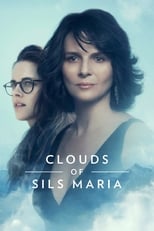Reno
Nov 4, 2016
6/10
The actors and their generation difference, evolution of cinema and the beauty of nature.
This is about a middle aged actress who spends in the Swiss Alps with her personal assistant while preparing for the upcoming project. During that time, she receives a news that the author of the book which was adapted for the screen 20 years ago where she play a main role and now in its remake, she's doing another part, while a young sensation playing the main part. This is more like the evolution of cinema. The 20 years is too soon for her, while the cinema and its trend advanced rapidly. Precisely to say, the commercial films and young actors taking over the art films and true artists' places respectively.
If you at least 30 years old, you would get this film more than others. Because while I was growing up in the 90s, the cinema was so different. I'm not talking about the technology like computer graphics, but the story and how it was narrated for the screen. Now the science- fiction and dystopian themes taking over with the young audience and social media support. I think it was a quite meaningful film, particularly if you adore films like the recent evolution in cinema was so faster than ever.
The negatives were, the film was too long, slow pace and too simple drama. The positives were, the actors and their performances, the locations, theme and some of the dialogues. Directed by a French filmmaker, this is an international project with a few guest appearances. Most of the film was set in the Alps. Totally different than what I was anticipating, but I still like, except in a few parts where I got bored for its weak development. So this is for the selected audience, that mean it will be appreciated by a very few and I'm kind of neutral with mostly in its favour.
6/10
